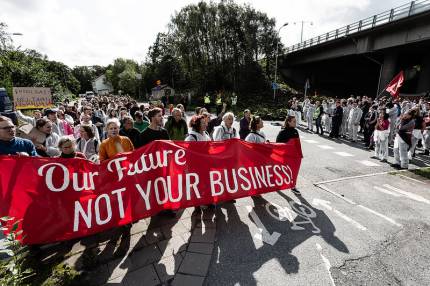
This is a guest post by the local group Fossilgasfällan who launched their campaign against the Gothenburg terminal in early 2017. A version of this text was originally published on their website: fossilgasfallan.se/a-big-win-our-story
It has been a difficult task to make our government understand the true nature of “natural” gas (= fossil gas). When the campaign started fossil gas was a non issue here in Sweden. It was not on the political agenda, and barely even on the agenda of the climate movement. Needless to say, there was a lot of work to be done.
Since the campaign started, over a thousand people have signed our petition against the terminal and thousands of emails have been sent to the ministers in charge of the issue to really make sure they know the facts, and know what the people want.
We’ve held a vast number of talks about fossil gas and written opinion pieces, to inform the public on this issue. We’ve had countless meetings with NGOs, decision makers and other grassroots.
We’ve spent hundreds of hours on research and we’ve enjoyed a number of long (and fun!) strategy workshops together.
We’ve connected with gas fighters from all across the world – through social media and solidarity actions, as well as activist conferences and climate actions all across Europe.
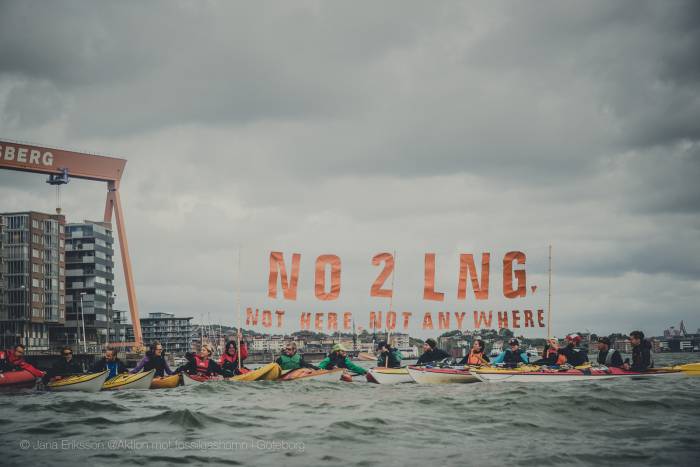
Credit: Jana Eriksson
In the summer of 2017, we came together with other organisations to organise a climate camp and our first big action: An extravagant protest with kayaks outside the Port of Gothenburg.
Still, the ministers responsible for the issue refused to meet us.
Only after disturbing a talk held by then Minister of Energy Ibrahim Baylan, he finally agreed to a meeting with us. However, still not willing to give a straight answer about the final permit for the terminal.
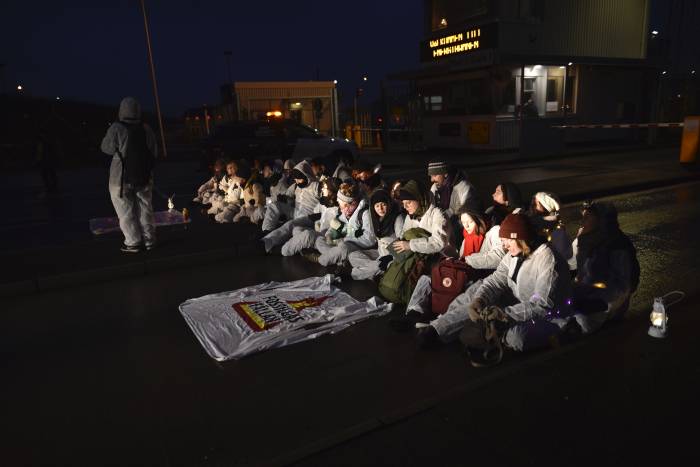
Credit: Fossilgasfällan
In December 2018 another action of civil disobedience was organised: a blockade at the Energy Harbour in the Port of Gothenburg blocking trucks from entering.
Finally the issue was starting to gain attention – we received a lot of media attention. But still, our ministers responsible for granting or denying the final permit for the fossil gas terminal, did not give us a clear answer. Would they allow or deny an increased import of fossil gas to Sweden?
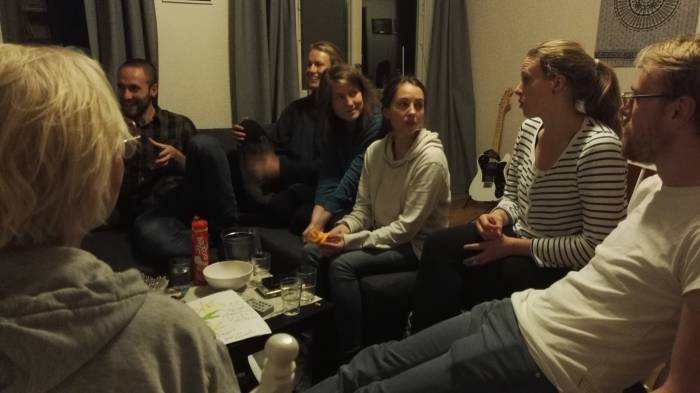
Credit: Fossilgasfällan
We kept organising. Our Monday meetings (each or every other week) were a time for brainstorming, planning, having fun and caring for each other. Support from larger organisations grew and journalists would come to us with questions. We organised a disturbing activist presence at the industry conference Gasdagarna (“the Gas Days”) in May 2019.
Through now established relationships, politicians from different parties asked us for advice and wanted to channel our opinions into debates that over the years have taken place in both the local parliament in Gothenburg (June 2017) and in the national parliament in Stockholm (September 2019).
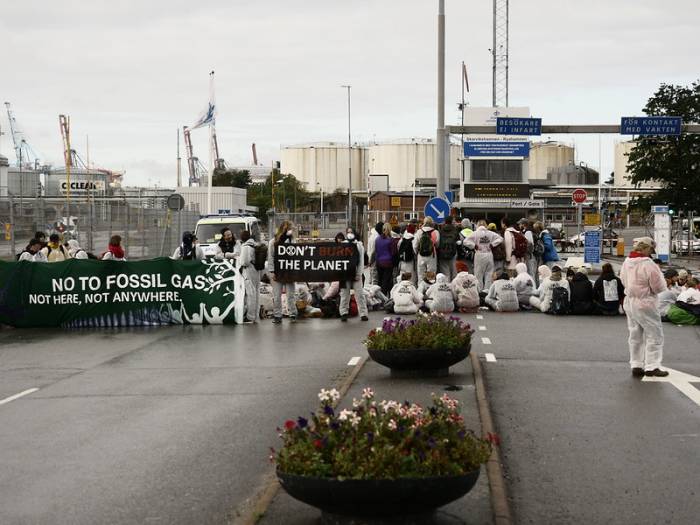
Credit: Fossilgasfällan
In September this year the first ever climate mass action in Sweden hit the media with a bang. It was Folk mot fossilgas (“People Against Fossil Gas”), a 12-hour blockade where 450 people again blocked the entrances and exits for trucks to the Energy Harbour in the Port of Gothenburg to protest the construction of the fossil gas terminal and the proposed increased import of fossil gas.
After this action, the politicians listened to the people. A few days ago the Minister of Climate and Environment went on the television news to tell the public that they are denying Swedegas the permit to connect the fossil gas terminal to the national gas grid.
We could never have done this without the dedicated support from everyone who has been involved in supporting our campaign. Everyone who participated in marches and manifestations, everyone who sent an email to a decision maker, everyone who talked about fossil gas with their friends and colleagues. Every single one of you made this happen. Together.
However, the result cannot only be measured in decisions from the government. Activism connects people and organisations, spreads hope and awareness and challenges us to become even more competent and skillful.
These skills, connections and hope we will continue to make use of to change society and achieve a decolonised, people powered, zero carbon world. Even if it will take days, weeks and years of working together.
In solidarity,
Fossilgasfällan